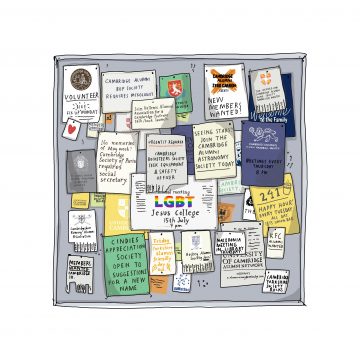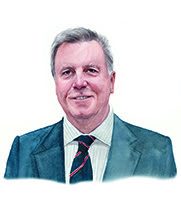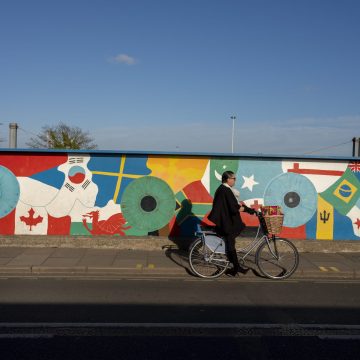The fascinating history of the Careers Service
The University has been setting a course for Cambridge graduates since 1899. But back then, the advice issued by the Appointments Board, as it was known, was rather… different.
CAM uncovers the fascinating history of the Careers Service, and how it evolved into today’s modern institution.
On 4 November 1899, Vice-Chancellor William Chawner opened a meeting at Senate House to put an interesting new venture before the University: a service to help graduates into their chosen careers.
“The University, from one point of view, might be regarded as a large manufacturing concern,” he remarked. “Every year in June it turned out a number of students with trained capacity, and willing to work if work could only be found for them. Most of them had been wise enough to choose their profession beforehand. They meant to be clergymen, doctors, lawyers and civil servants. Yet even they in many cases required some assistance to guide them to the particular places they wished to occupy in their profession.”
Of course, he pointed out, there was also that other “not inconsiderable class” of those “who had not been so wise” to pick a profession for life at the age of 18. But despite their lamentable lack of forward planning, these men (and they were, at this point, all men) still had potential and were “well fitted for practical work.” They just needed a guiding hand. The University agreed. And so began the Cambridge University Appointments Association, later the Appointments Board and now, of course, the Careers Service.
By 1901, 525 undergraduates, BAs and junior MAs were paying their annual five shillings to get a suitable career start in everything from agriculture to shipbuilding.
“And today, we are more relevant – and more needed – than ever before,” says Jenny Blakesley, current Director of the Careers Service. “We sit at that intersection between the labour market and the talent pipeline. In an age where we are all hyper-connected, it is still very possible to simply not encounter opportunities beyond your bubble. We can show you the range of opportunities that is out there.”
Indeed, today’s Careers Service can put an incredible array of information and tools at a student’s disposal, plus a staff of highly trained advisers and a global employer network – a far cry from more humble beginnings. The Association began in just two small rooms at Kenmare House, 73 Trumpington Street, but by 1901, 525 undergraduates, BAs and junior MAs were paying their annual five shillings to get a suitable career start in everything from agriculture to shipbuilding.
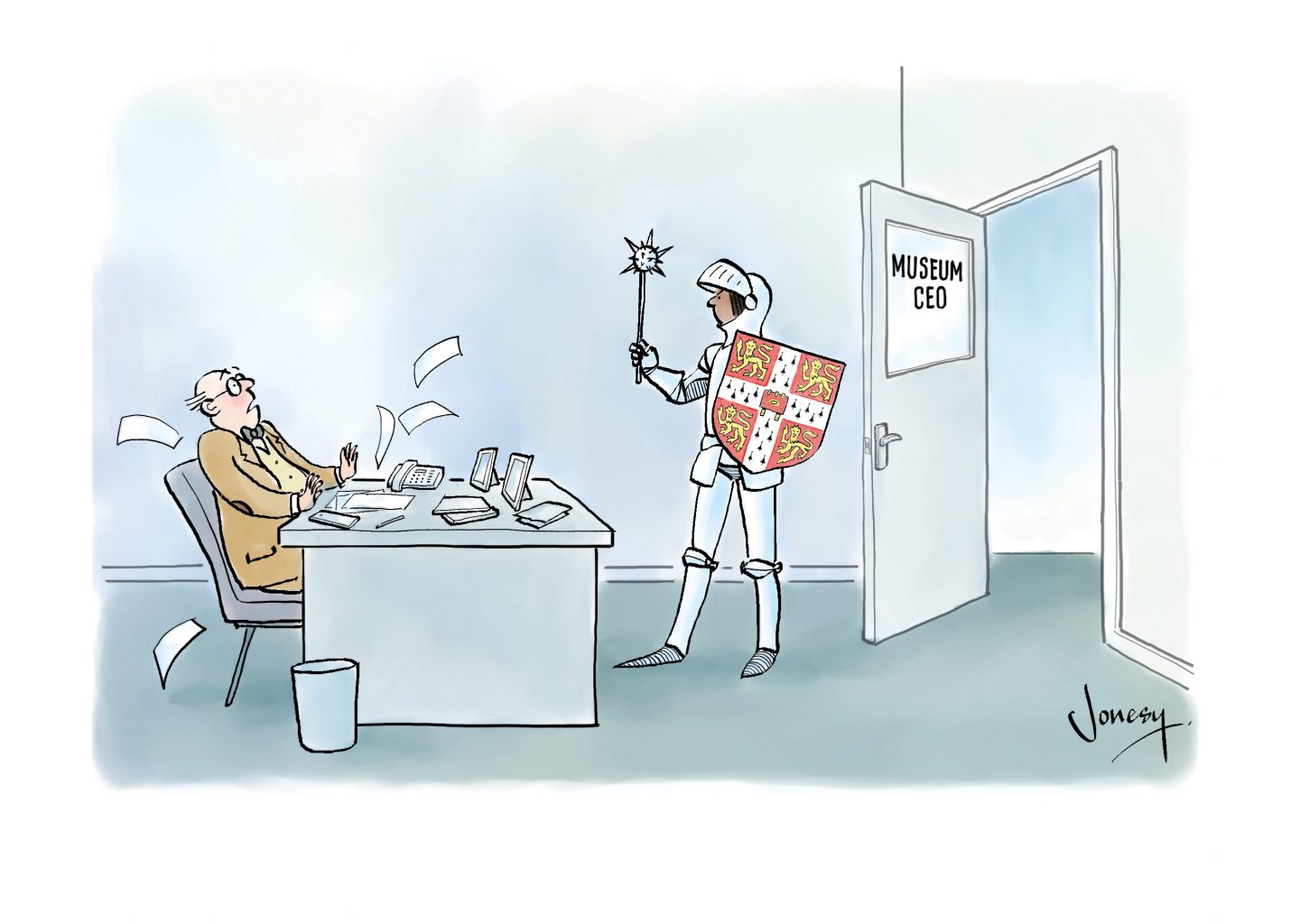
“The Day Book gives a flavour of the service in its early days. On 20 March 1905, a Mr Armstrong enquired about a career in the Consular Service. “He should talk to people and then I’ll call the Foreign Office,” was the advice. Employers were keen to take advantage of this new service, too. On 23 March 1905, a Mr Candy visited. “Estate in Cachar, 29 hours from Calcutta – just below the Manipur Hills. Paying £100-£120 for a year. Everything found except liquor. Good shooting, fishing, tennis and polo. Man wanted as soon as possible.””
As the Board grew, it gained a reputation for somewhat unorthodox advice. In the 1960s, law student David Denton (Selwyn 1962) was told: “If you don’t want to be a lawyer, sales is for you.” And when Richard Tucker (Trinity 1969) asked about merchant banking, the Appointments Board “did not think to explore in conversation whether I was suited to such a ruthlessly competitive field. It wasn’t until the actual interview process that I discovered I was temperamentally unsuited to merchant banking.” (The story ends well, however: after a short career in the civil service, Tucker resigned to train for ordained ministry in the Church of England.) Undergraduates remember being steered towards PhDs, even if headed for a Third, on the basis that “Edinburgh will probably take you…”
But it could also hit the mark: Sue Latimer (Newnham 1980) was given what she calls the “best careers advice ever” when she went along to find out about a career in museums. “The advice was… don’t get a job! The best way into museums at that point was the Manpower Services Commission (MSC) Community Programme, a job creation scheme for people who had been unemployed for at least six months,” she says. “Museums were making great use of the scheme to get things done. I took the advice. In the autumn after graduating, I volunteered in a museum until several MSC jobs came up nearby. I applied, and six months to the day after my last Tripos paper I took my first paid steps into a museum career.”
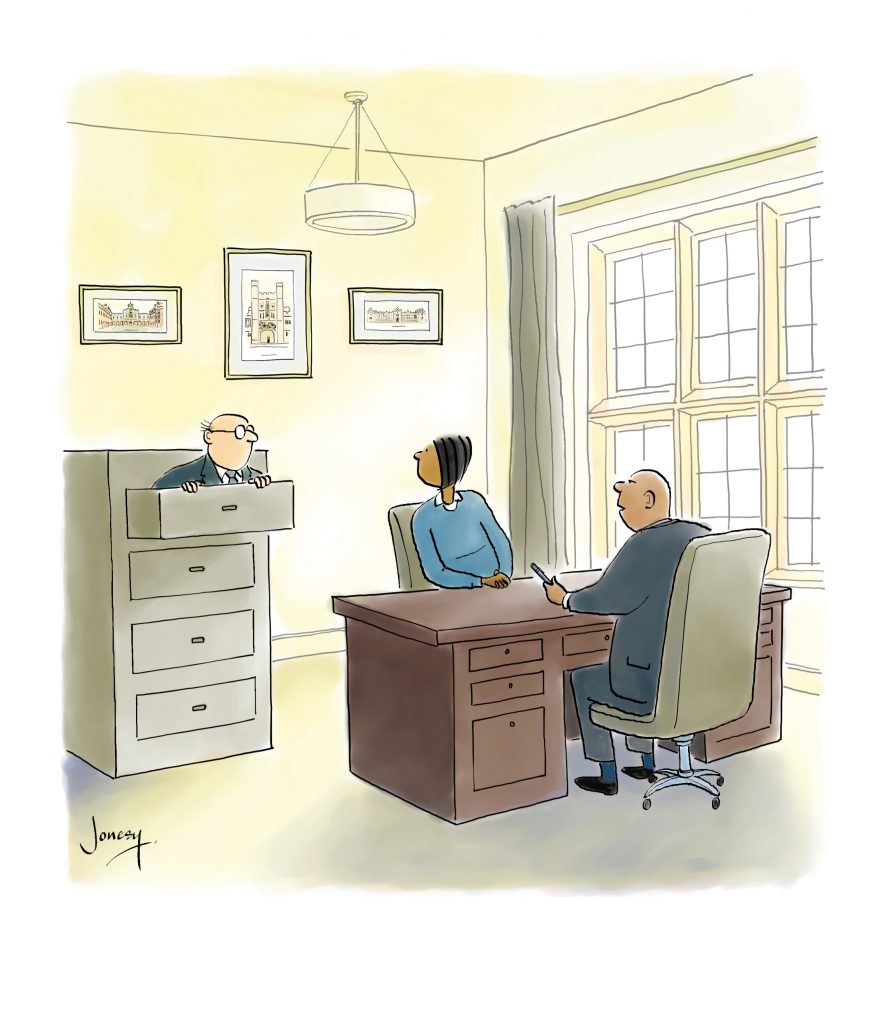
For Ken Bulteel (Fitzwilliam 1966), who cycled down to the Appointments Board one chilly, overcast November morning in 1968 “with a relatively low degree of expectation of what my journey that day might achieve”, the advice he received changed his life. “I was greeted by a tall, elderly gentleman wearing a heavy tweed suit, possibly even sporting plus-fours – and my expectations plummeted further. His opening line rather threw me, ‘Aargh, yes, Bulteel… you’re the numerate artist, aren’t you?’ Failing to comprehend, I responded jovially with “well, a sort of artist maybe, but my chums would choose a rather more vulgar adjective than ‘numerate’.”
He was not deterred and explained to Bulteel that although he was reading Geography, his CV showed an HND Maths course at night school; therefore he was a ‘numerate artist’ and perfect for a career in a relatively new but exciting field – computing. “I was aghast and explained in very forthright terms that I had not the slightest interest in computers or anything to do with computing, and that I had come to discuss openings in marketing or market research,” says Bulteel. However, under pressure, he agreed to an interview with a London stockbroker. He found himself part of the firm’s first computing department and went on to have a highly successful career in the field. “I have been ever-grateful for the advice and guidance which took me down an avenue that I would never have considered and delivered me a career that exceeded my wildest expectations.”
The Women’s Appointments Board had come into existence, officially, in 1948, so aggrieved were women at the lack of careers advice provision for them.
During the early to mid-20th century, the Appointments Board grew and changed with the times but was still more of an appointment agency – hence the name – than a true careers service, concentrating more on finding and recommending students for posts than giving more general careers advice. But by the 1970s, most companies preferred to use direct advertising. The Board was now a channel rather than a selector for graduate employment, and to reflect that change, it became the Careers Service in 1976 – a change which then Secretary Bill Kirkman described as a “minor triumph”.
The renaming also saw the women’s and men’s boards amalgamated, under the auspices of the final Women’s Appointments Board Secretary, Joan Holgate. The Women’s Appointments Board had come into existence, officially, in 1948, so aggrieved were women at the lack of careers advice provision for them. But, in fact, a Cambridge University Women’s Appointments Board (CUWAB) began in 1930, on the initiative of Newnham College, as a joint enterprise with Girton.
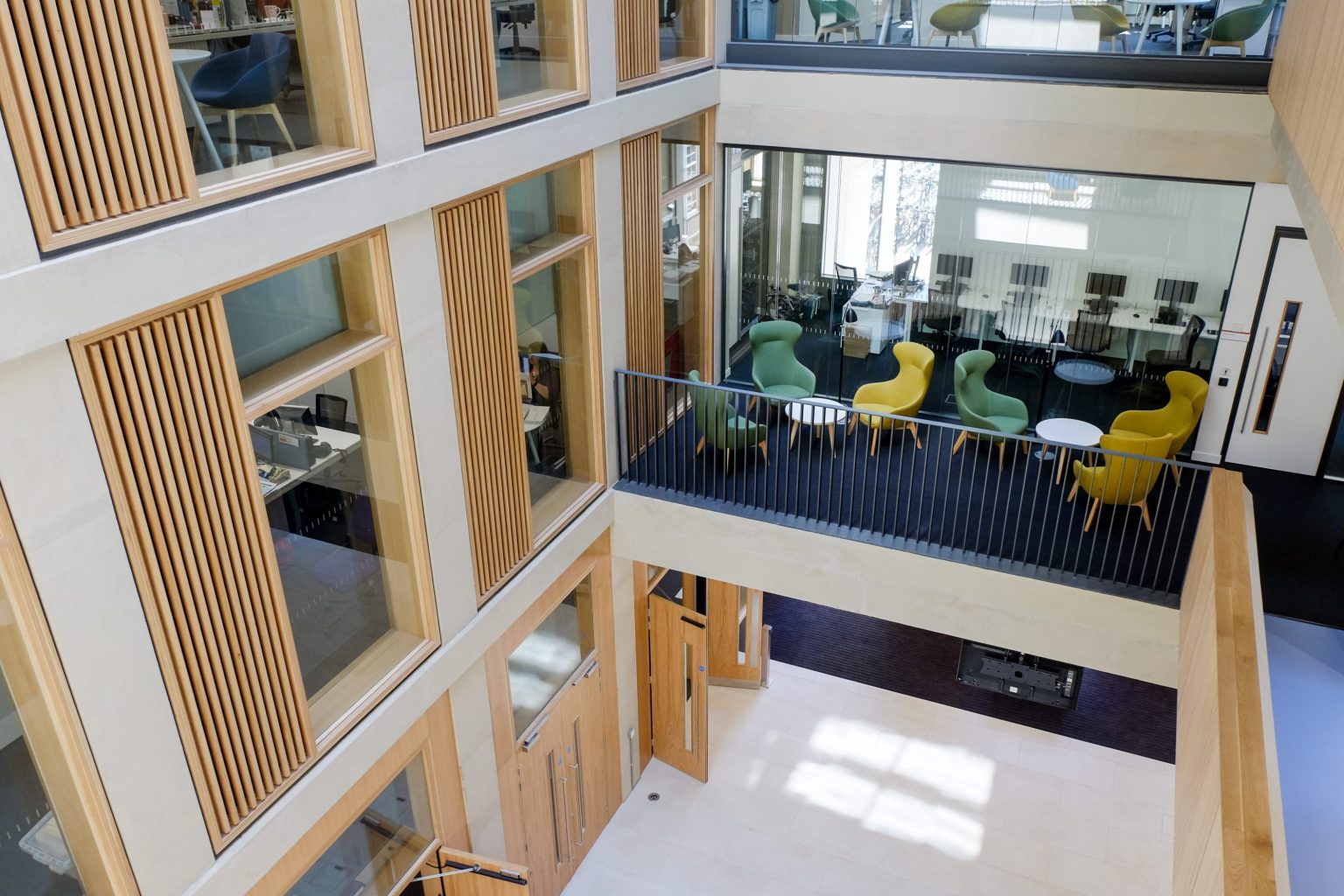
Two formidable women drove its initial success. The first Chair, Ray Strachey (née Costelloe, Newnham 1905), was a leading figure of the women’s movement. Her sister-in-law, Virginia Woolf, said of her: “She makes me feel like a faint autumnal mist, she’s so effective.” Sybil Campbell (Girton 1908), the first Secretary, was among the first half-dozen women admitted to Middle Temple in 1920, the year in which women were first allowed to enter law.
Sadly, just a recommendation was not always enough to break down the considerable barriers to women’s employment. “I well remember my visit to the Appointments Board in 1969,” says Shelagh Godwin (née Claxton, Newnham 1966). “I was greeted by a most charming woman who told me what I didn’t want to hear! I had been engaged for about a year, and was told that, therefore, two of my dream careers would be closed to me. They were a post in the administrative grade of the Civil Service and a post at the BBC.”
What a difference a few decades make. When Melanie D’Mellow (née Sadler, Newnham 1992) joined the CU Automobile Club, got hooked on cars and motorsport and realised that she wanted a career in engineering and not physics, the Careers Service was key to her success. “I was guided towards an Automotive Engineering MSc at Cranfield University, which helped me land my first job as a Development Engineer in the Research Department at Ricardo,” she says. “I am still loving engineering and am now Head of Engineering at Animal Dynamics, developing autonomous unmanned air vehicles.”
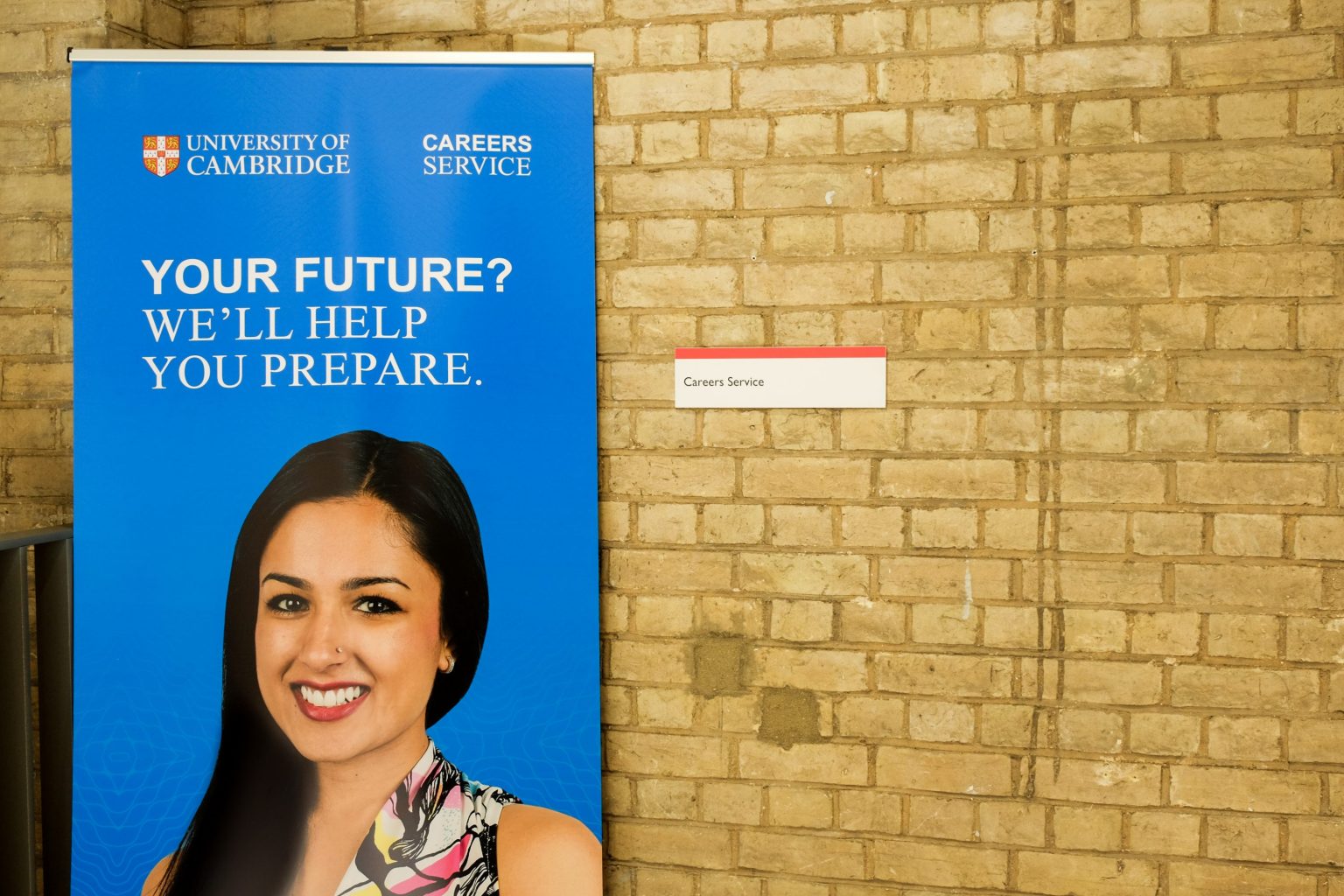
Today’s Careers Service is still an incredible fount of career wisdom and data-driven practice, providing careers guidance to undergraduates, postgraduates and post-doctoral researchers, honing career-management skills and providing links to those who have gone before via Alumni Careers Connect. Its extensive industry connections enable it to stay ahead of the game, preparing graduates for jobs which may not even exist yet, and it provides a world-leading programme of talks, events and networking opportunities.
We are a space where you’ve got time to think and reflect with somebody who’s only interested in you making the right decision for yourself.
But, says Jenny Blakesley, it’s also about providing a space for the modern-day equivalent of Chawner’s so-called “not so wise” who, back in the early days of the 20th century, wanted to broaden their horizons and look beyond traditional career choices. “Where we are now is so far from the traditional approach of ‘why not be an accountant? Here’s how you become an accountant.’ And perhaps that’s the biggest and most positive change of all. We are a space where you’ve got time to think and reflect with somebody who’s only interested in you making the right decision for yourself. You can be honest and open about who you are and what drives you.
“We meet our clients wherever they are – whether they’ve got no idea what they want to do or have a clear idea,” continues Blakesley. “In today’s fluid and volatile labour market, we’re helping people spot opportunities and then position themselves well to maximise those opportunities. We’re preparing people for the kind of fluidity and change that they need to be able to actively manage their careers. Our job is to help people make good decisions for themselves – and to keep making those decisions as they move through their career.”

